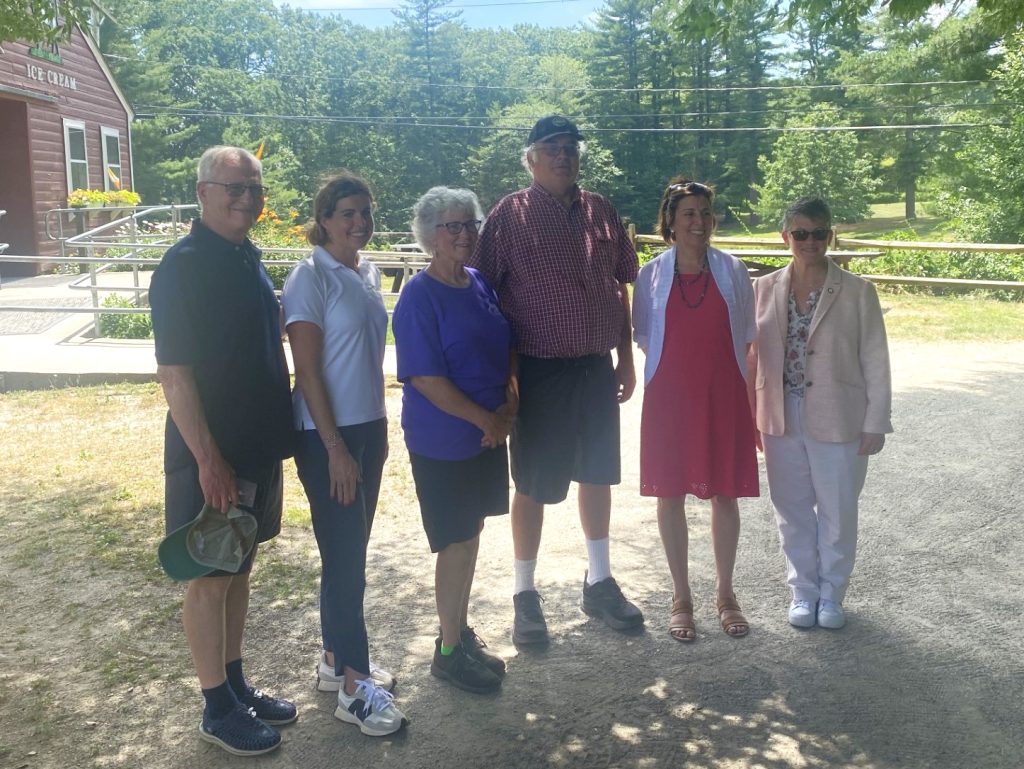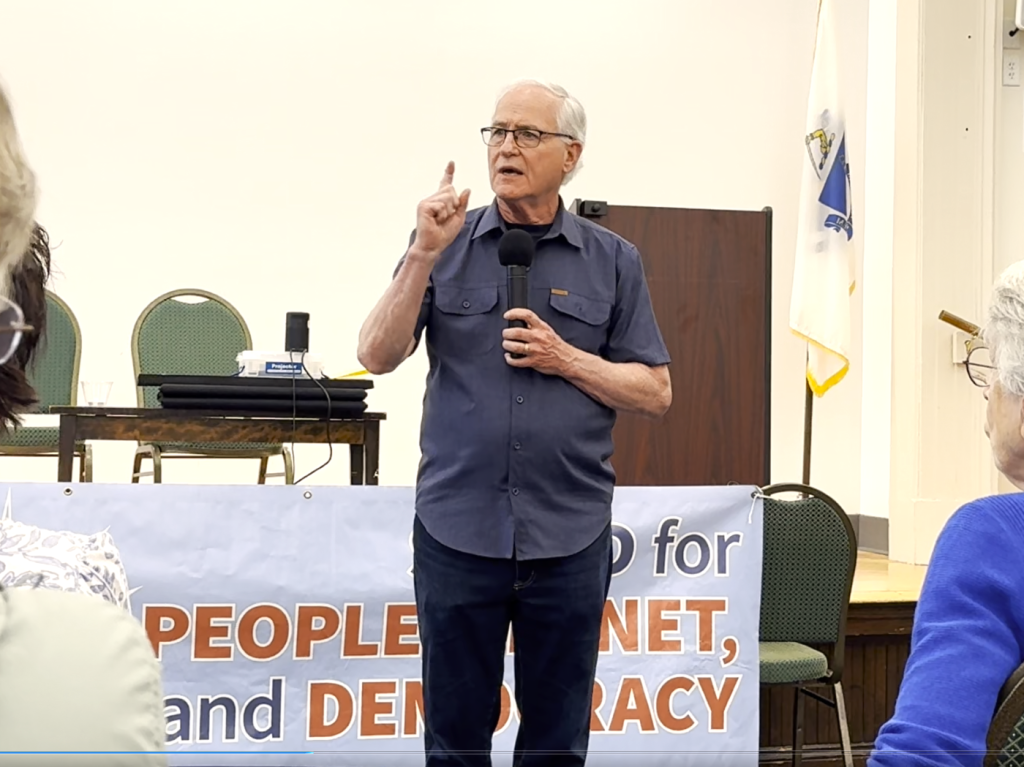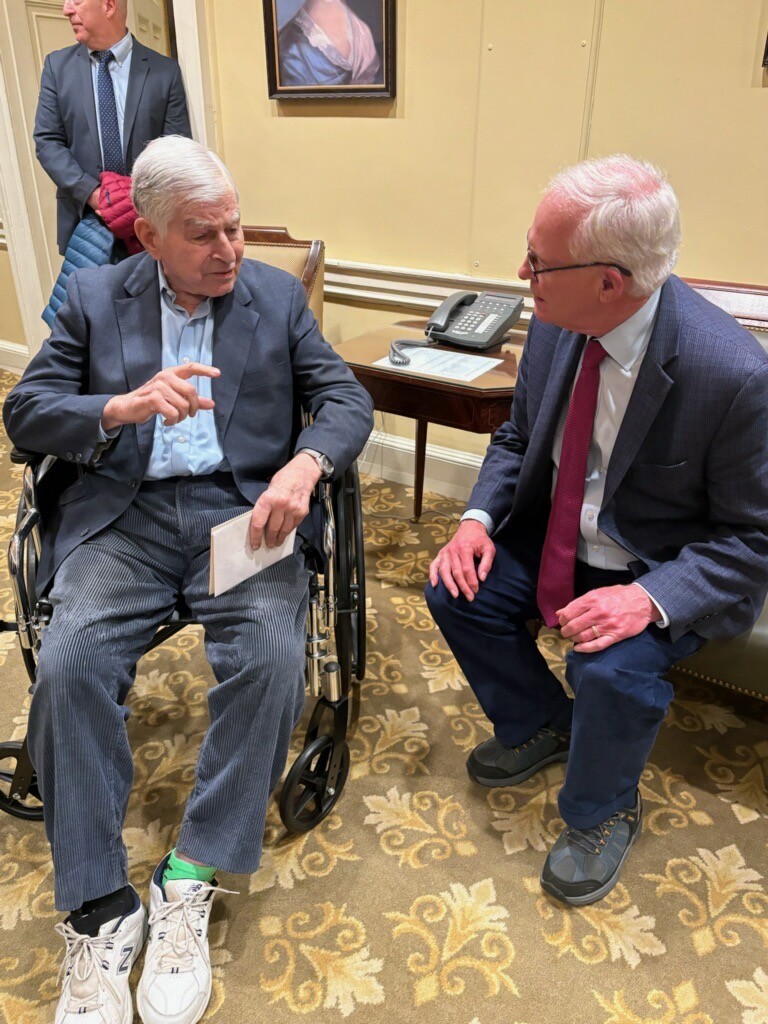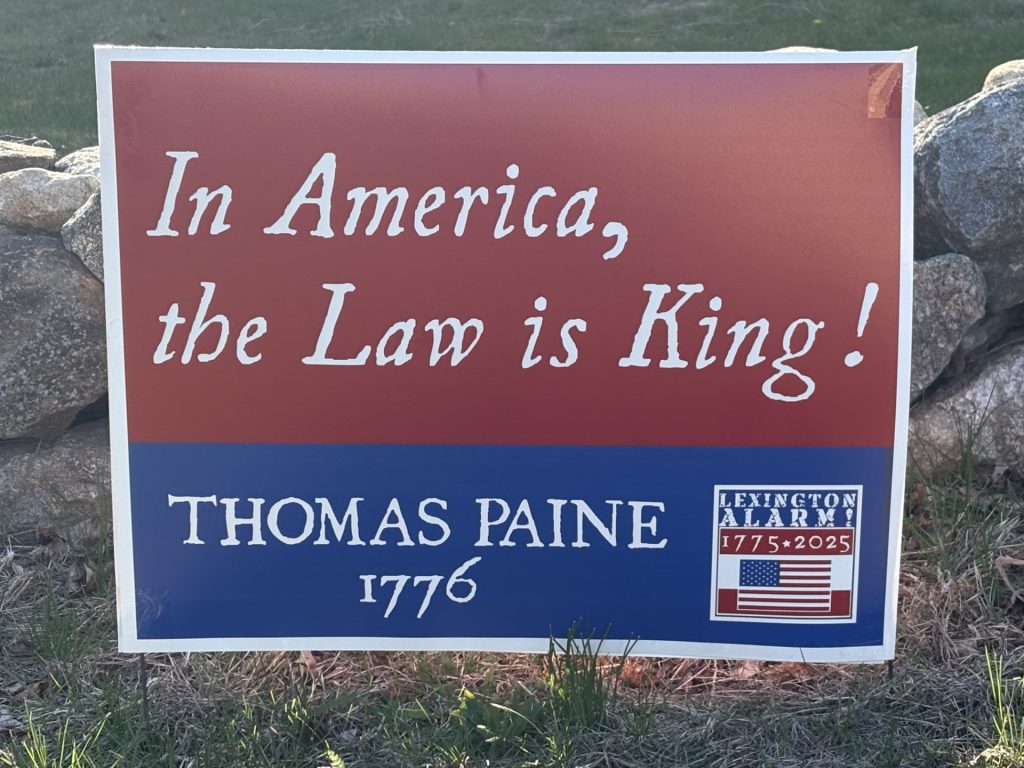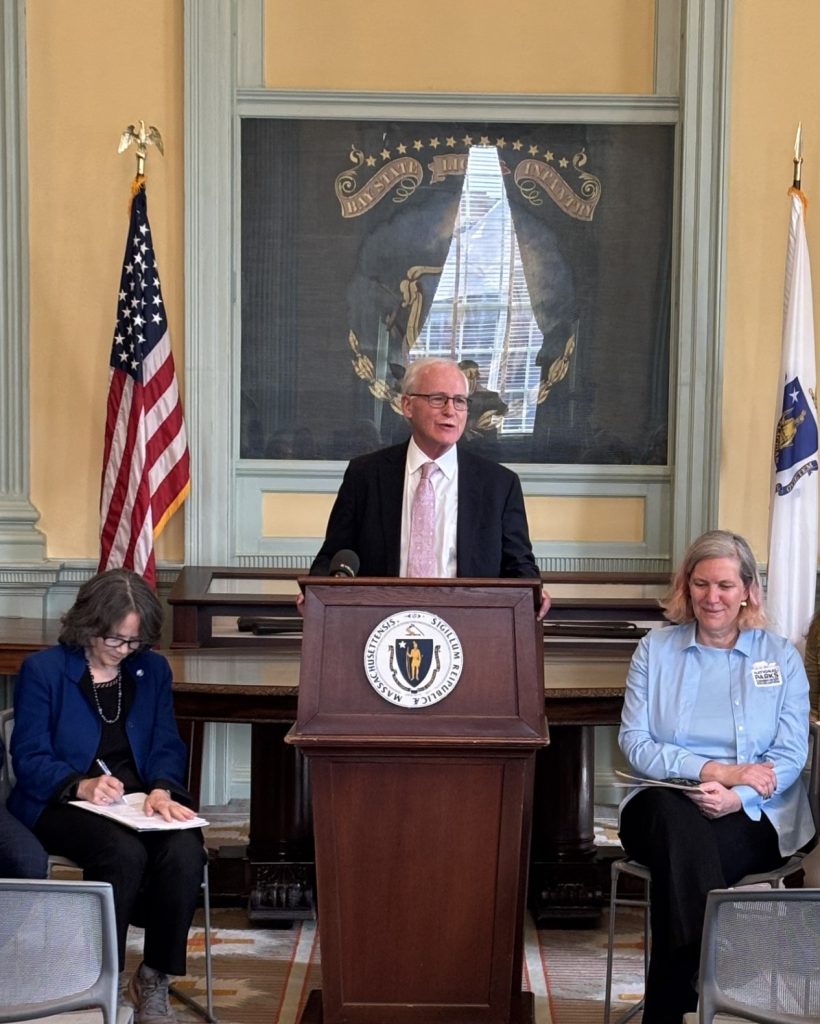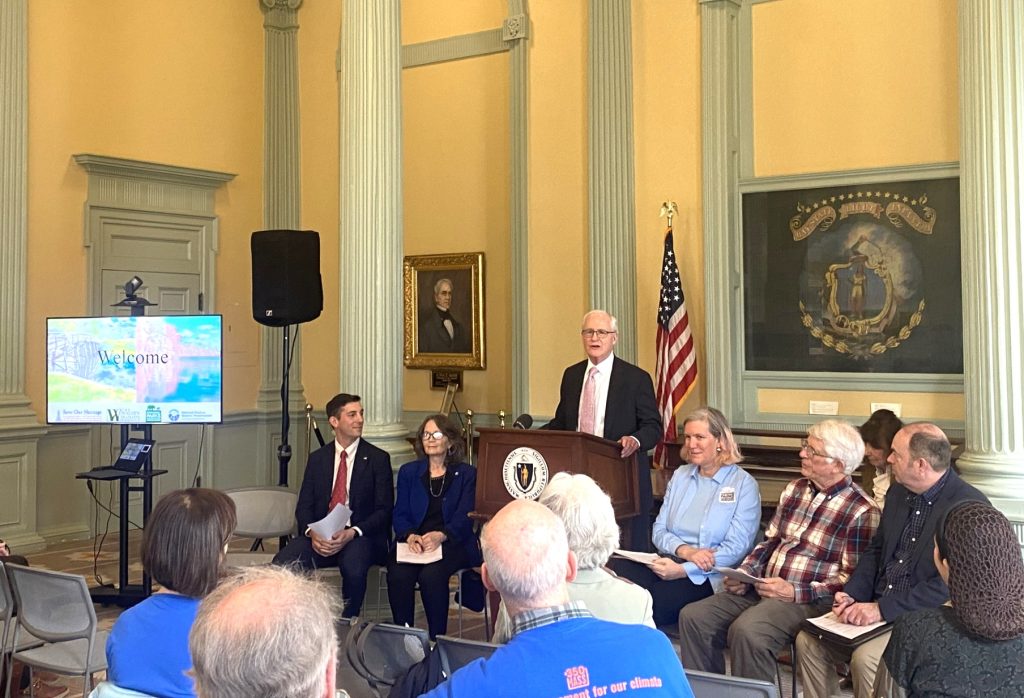Fun fact: Massachusetts has its own Ice Cream Trail. It’s made up of a group of more than 100 ice cream vendors across the state, including Great Brook Farm in Carlisle. I joined Secretary Tepper at Great Brook, where the Duffy family showed us around the farm. Mark Duffy, our tour guide, was much more charismatic than the cows. Ice cream was terrific.
